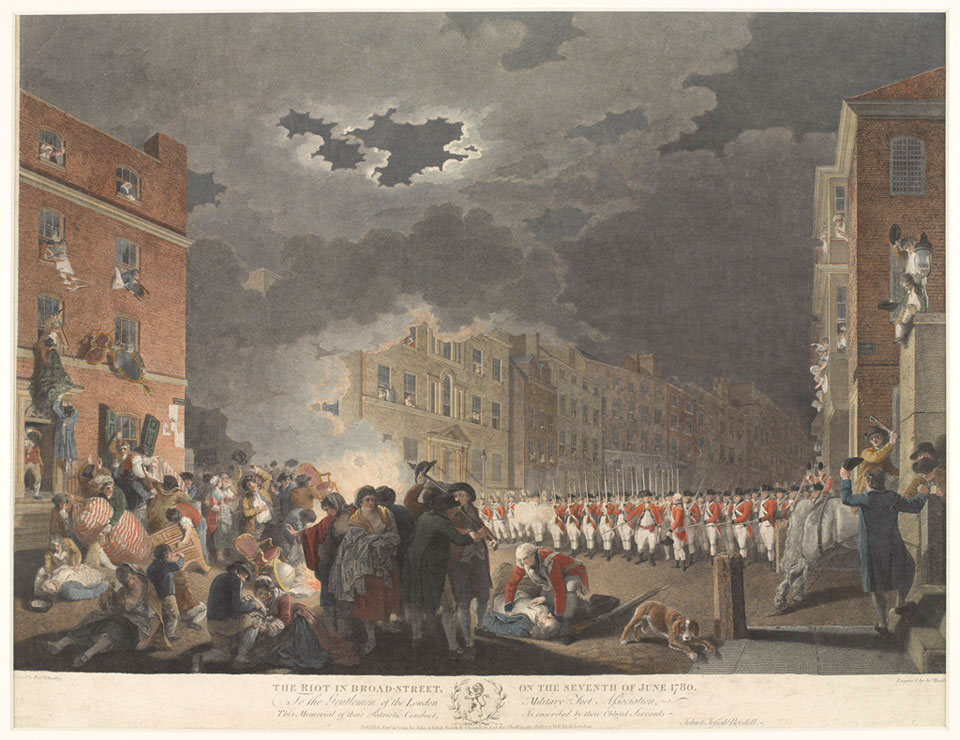Devout Unbelief, Part 4
November 18, 2014

In the Mormon temple ceremony, Joseph Smith put forward a bold vision of what it means to be human: Men and women are gods in the making. Properly schooled and empowered, they can become anything, or, rather, everything, they can imagine.
Smith’s vision for society was no less radical: With his fellow saints, he would build brick and mortar communities fit for such divinity. For Joseph Smith, the City of God was not a distant, heavenly ideal, but a real city to be erected here and now on the American frontier. In this communitarian and egalitarian New Jerusalem, profit and poverty alike would disappear, and human beings would be free to develop their divine potential.
Skeptics and critics of Joseph Smith point out that, while this may be a nice idea, it’s a fantasy. And people shouldn’t believe in fantasies. Yes, it is a fantasy. But then, so is secular, Jeffersonian democracy. And so is the American dream (the good one, of ordinary people enjoying the benefits of their labors), yet people believe in these. While we recognize that these dreams also have their downside, most of us must admit to being partial to the fantasy of an upside.
So, does Joseph Smith’s crazy dream have an upside, a benefit that deserves to outlive our criticisms of the man and the fairytale elements of his religion? For me it does. What Joseph Smith did that Jefferson, as a student of Cicero and a deist, could not, and that boosters of the American dream, as mere producers and consumers of kitsch will also never do, is to imagine, as Harold Bloom puts it, “the American sublime.” Speaking as an atheist, I’m still inspired by Joseph Smith’s chutzpah in asserting that the sublime matters, even in America. Arguably, many of our present problems are due to the fact that we do not have, and for the most part have never had, a place for the sublime. Modern Mormonism certainly does not. Like its all-American poster boy, Mitt Romney, Mormonism runs from Joseph Smith’s heterodoxy, and wants nothing more than to be accepted by the very evangelicals he turned his back on when he started his own religion. At the heart of the American sublime imagined by Joseph Smith is the sacred, and non-monogamous, union of men and women. That there is room for that sublime in our compulsive, neurotic American sex life seems self-evident to me.
On a purely practical level, Joseph Smith did two things worth serious attention. First, he questioned the capitalist system on which America is built, and proposed a communitarian alternative, which Brigham Young later tried to put into practice. Second, he questioned the institution of traditional marriage, and again proposed an alternative in polygamy.
Independent of any religious impulse or concern for the sublime, many people today have come to views on economics and marriage not dissimilar to Joseph Smith’s. The catastrophic impact of runaway capitalism, evident to all but the most die-hard Neoliberals, has been the subject of many fine critiques in recent years, but none finer than Naomi Klein’s This Changes Everything: Capitalism vs. The Climate (2014). Climate change is our apocalypse, and there will be no getting through it with our sins unshriven.
The inadequacy of traditional, monogamous marriage is no less evident to observers of the present American scene. When half of all American marriages end in divorce and many of those that don’t perhaps should, and when nearly half of those living together in long-term relationships now do so outside of marriage, it’s not unreasonable to ask whether traditional marriage should not go the way of capitalism. While polygamy is not the answer, polyamory, the secular, gender-neutral, and ethical equivalent for the 21st century, may well be.
As Ed Abbey said, “Every man should be his own guru, and every woman her own gurette.” But we can learn from prophets. The things they’ve given us in books like the Bible or rituals like the Mormon temple endowment, while they have their, to us today, silly side, are also important statements of what it means to be human, what it means to create love and meaning out of nothing, what it means to be gods of flesh and blood.
Mormonism’s mistake—probably its fatal mistake—has been to bet the house on the historicity of the Book of Mormon and similarly literalistic notions of Christian history and theology instead of on the transcendent, mythic truth of its original social gospel and its most inspired ritual. In place of its founder’s heterodox and inspiring notion of the divine man (and divine sexuality), contemporary Mormonism offers “family values,” an American staple as old, and inspiring, as mashed potatoes.
Religion at its best, that is religion as embodied in myth, ritual, and art, teaches us that the most important truth transcends history. It transcends science. It transcends the literal. The more literally you take such truth, the less true it becomes. Even as an atheist, religion retains its importance for me. In spite of all the right things Richard Dawkins says about it, in the end he’s wrong. Religion is more than sacred nonsense.
That’s also why, despite my unbelief, I chose not to have my name removed from the membership rolls of the LDS Church. Remaining a member, however nominally, is my way of honoring those like Zina and Brigham who went before me, who lived and gave their lives in the service of an ideal I share, the ideal of building a radically better society in America. I am an unbeliever, and I mourn for Zion.





